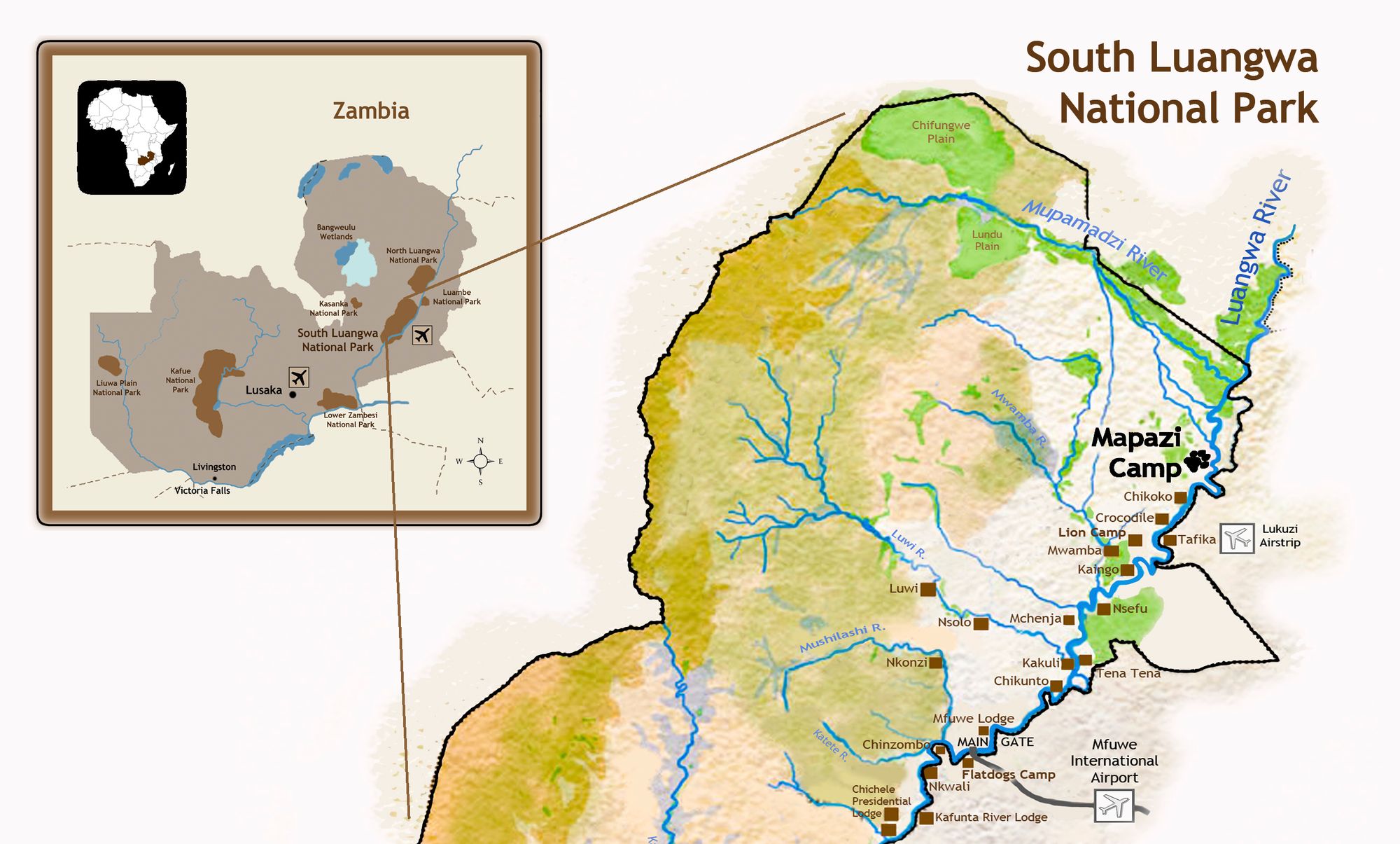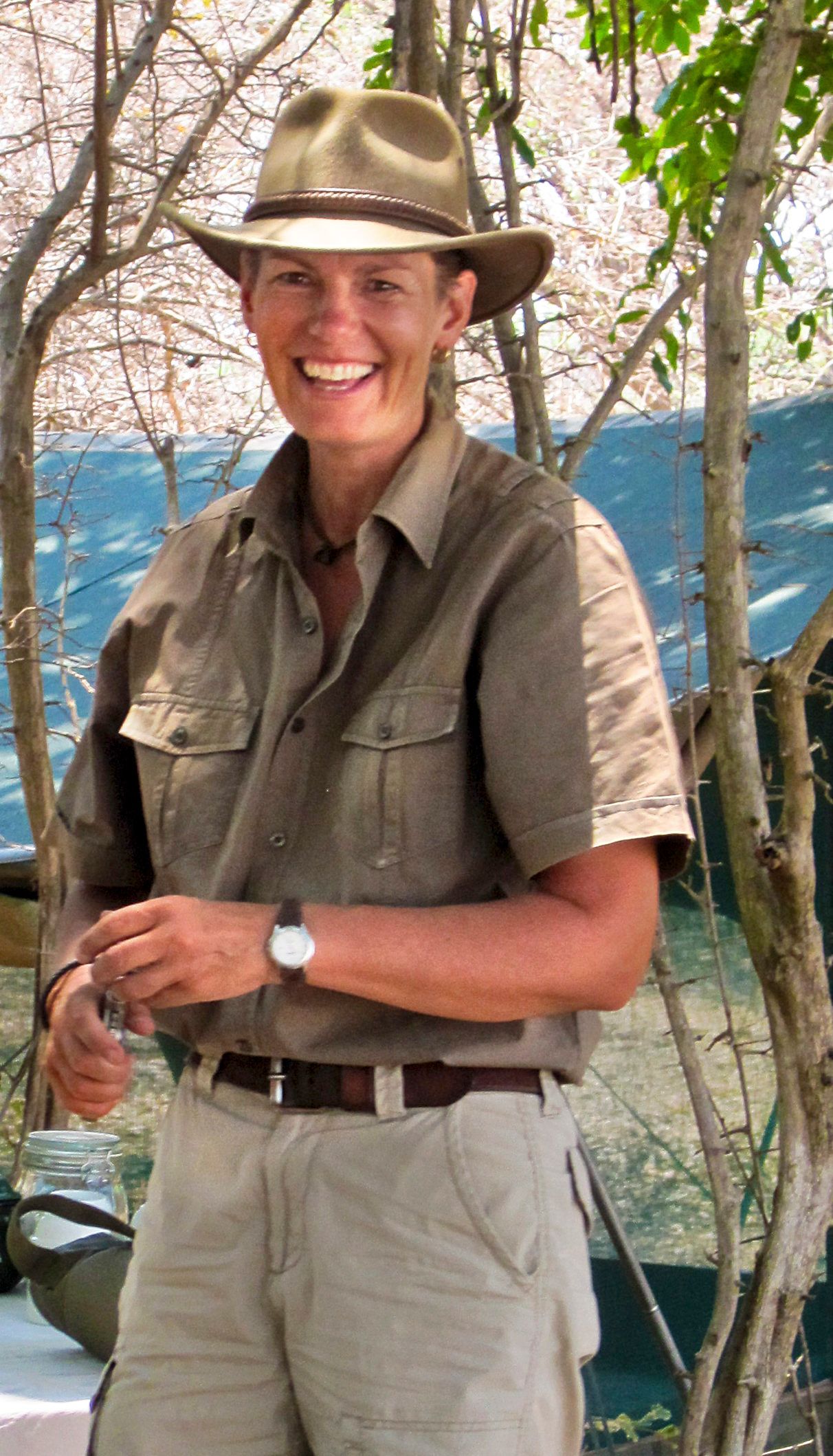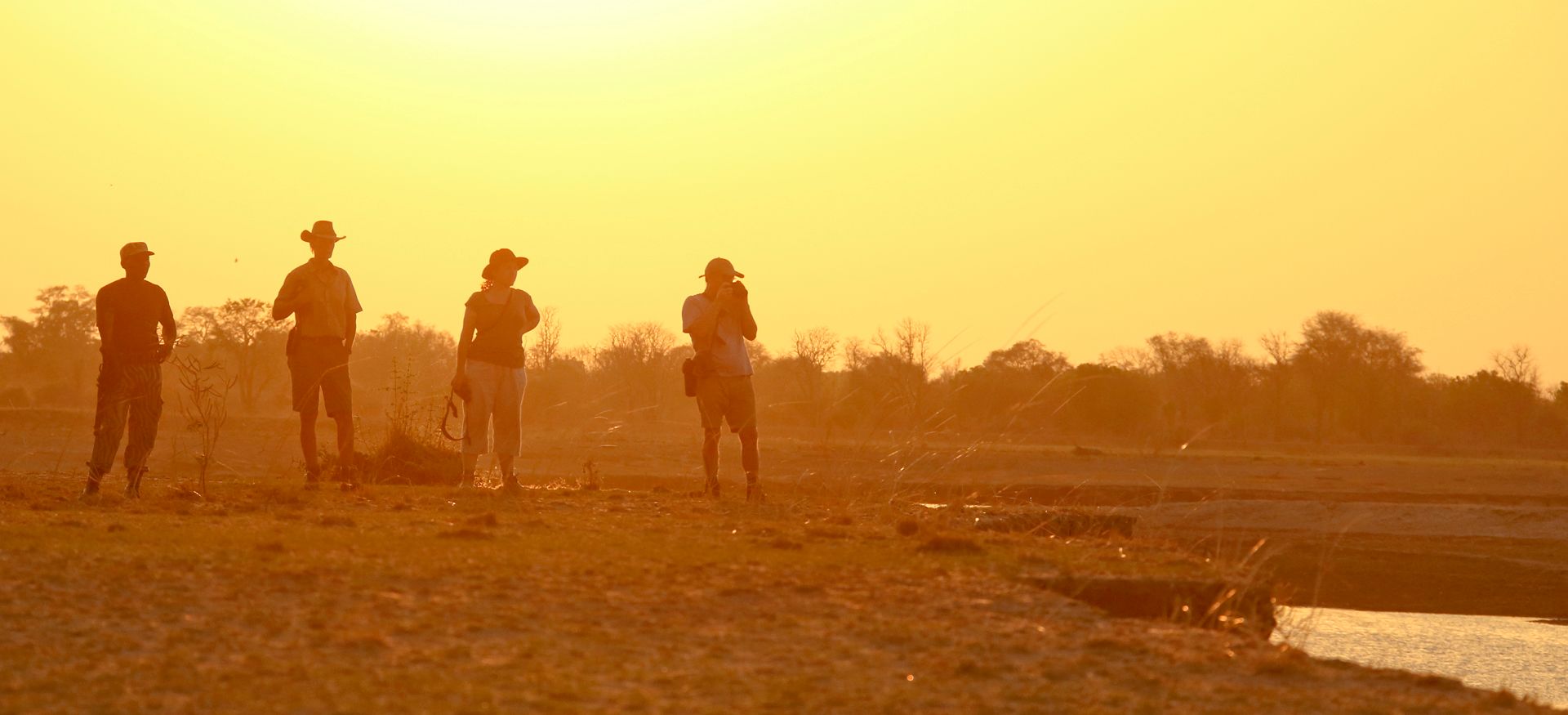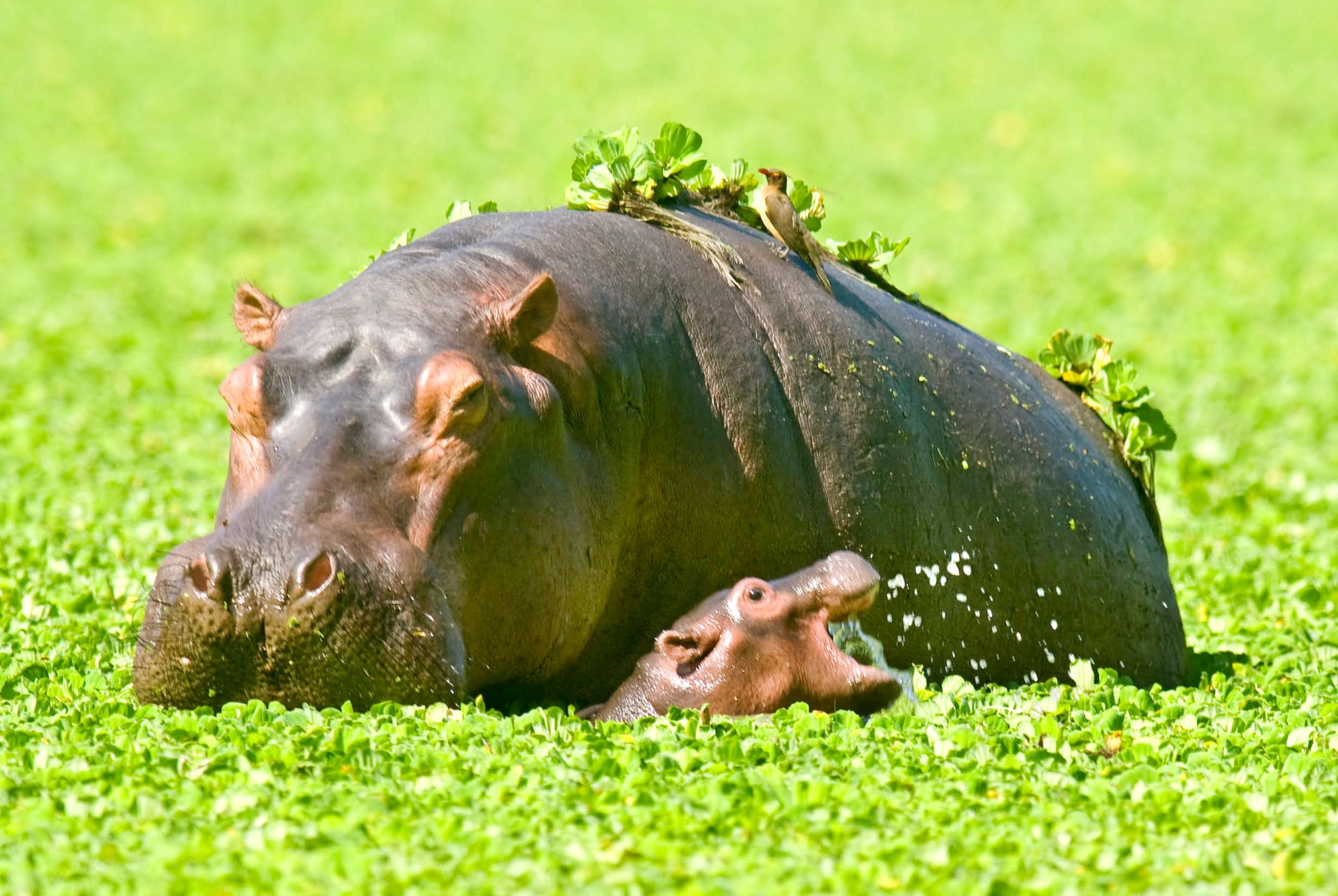Piolets d'Or Announces the "Significant Ascents" of 2023
This list of 68 climbs is effectively a "long list" used to select nominees of the prestigious alpine award.
Close encounters, on a walking safari through South Luangwa National Park at the end of the Great Rift Valley.

Zambia’s South Luangwa National Park is at the end of the Great Rift Valley and it is through this 9050sq kilometre National Park that the meandering Luangwa River runs. The river, with its ox bow lagoons, tributaries, riverine woodlands and open plains, plays host to huge concentrations of wildlife including elephant, buffalo, leopard, lion, giraffe, hippo… over 450 species of bird and 60 species of mammal. Portuguese sea captain, Antonio Gamitto, when writing of the Luangwa in around 1832 said… “Game of all kinds is very abundant… great numbers of wild animals collect here… we can only say that this district appears to be the richest in animal life of any we have seen.” In 1866, Scottish missionary, David Livingstone, upon crossing the Luangwa River, said… “I will make this land better known to men that it may become one of their haunts. It is impossible to describe its luxuriance.”
[gallery type="rectangular" link="file" size="full" ids="10996,10994,11026"]
We were in South Luangwa for a three day walking safari with one of the most expert safari guides to be found in Zambia, Deb Tittle. With over 2,500 safari walks under her belt, Deb has been guiding in South Luangwa since the 1990s and is experienced at both interpreting the sights and sounds of the bush and at understanding, anticipating and explaining animal behaviour. Born in England, it was watching the movie Tarzan at a young age that awoke Deb’s fascination with wildlife. African wildlife television programmes further wet her appetite to explore the game rich areas of Africa herself. After university, and a stint driving overland expeditions through east, central and southern Africa, Deb decided on South Luangwa as her home. Passing guiding tests and honing her skills by working in a number of different camps and lodges in South Luangwa, Deb has passed on her knowledge to numerous local Zambians, many of whom now work as safari guides and conservationists in the park.


Nothing makes your heart beat faster than hearing the deep guttural growl of a leopard
Deb’s brand new camp, Mapazi, is one of the northern-most camps in the park, a place far beyond the busy game drive loops further south; an undisturbed part of the park where there are few roads and even fewer people. The perfect location for walking safaris. Mapazi, is a small camp, taking only six guests at a time… spacious safari tents, comfortable beds with crisp sheets, plenty of hot water to wash away the dust of the day and cold drinks to quench your thirst. Mapazi roughly translates from the local language, Chichewa, to mean feet or footstep, and is a fitting name for the experience we were here to have. Mapazi has been set up in this remote and beautiful part of South Luangwa, not only to offer bespoke walking safaris for people wanting to really immerse themselves in the bush but also as a base from which to run anti-poaching patrols in the off season.
Nothing makes your heart beat faster than hearing the deep guttural growl of a leopard hidden in a thicket less than 15m from where you are standing! A fleeting flash and blur of colour, as he’d dashed into the bushes, was what had drawn our attention to the leopard’s presence. I was initially rather sceptical about his existence, and clearly the nearby puku were too, judging by their apparent lack of alarm. As we advanced I grew even more dubious, until a growl from the thicket had my heart racing. Deb Tittle, our guide, shared a grin with me and, putting a warning hand on my arm, reminding me not to make a run for it, calmly shepherded the group around the side of the thicket. Suddenly the leopard broke cover and once again all we saw was a flash and a blur as he darted away.
[gallery type="rectangular" size="full" link="file" ids="10999,11027,11028,11029,11042"]
A few minutes later we startled a young, female leopard as she descended from an enormous tree, having finished dining on the last desiccated morsels of meat from a kill she had made some days earlier. Continuing our walk we came to an open plain, dotted with sausage and acacia trees, almost on cue, ten or so majestic giraffe came into sight, sauntering in their graceful way across the plain, while eland, waterbuck and impala grazed in the background. Having been briefed earlier by Deb about giraffe behaviour, as instructed, we feigned disinterest and the giraffe, accepting our presence, continued their slow amble, occasionally stopping to nibble the flowers of the sausage trees and wild gardenias. Not to be outdone by the morning’s leopard encounters, close to camp, three male lions relaxed in the shade. Unfazed by our intrusion on their morning nap, one retreated about 5m and the others, after giving us a cursory glance, didn’t move a muscle.
In camp, waking from a post lunch siesta, we discovered the camp’s resident bushbuck practically in our tent. Somewhat drained by South Luangwa’s October midday heat (into the 40s), we lay listlessly on the bed, marvelling at how close he was and pondering the likelihood of him jumping right up onto the bed. A giraffe peering over a nearby ‘hedge’ however spooked the bushbuck and he retreated to a safe distance, leaving us to watch some impressive aerial aerobatics from a pair of swooping, soaring and summersaulting fish eagles… ultimately culminating in some rather ‘R’ rated fish eagle activity.
[gallery type="rectangular" size="full" link="file" ids="11004,11008,11009"]
Located on a bend of the Luangwa River, Mapazi Camp is perfectly situated to catch the constant, and very welcome, breeze as it comes off the water, cooling things down in the intense October heat. Once the temperatures of the day had somewhat subsided we set out on foot again. Just out of sight of the camp, we rounded a corner, surprising a leopard drinking at the water’s edge. He didn’t sprint off, simply moved to a convenient gully and hid until we had gone. A little further along, we found the three lions of the morning’s encounter. Two slipped away and we watched the third, seemingly unobserved, or at least tolerated, until he too moved off with a mildly menacing growl. As dark started to descend, we turned and headed for ‘home’. Walking along the raised edge of the riverbank we found we were following a badly battle scarred hippo, limping through the shallows. Hundreds of huge welts, scratches and bight marks were clearly viable on his skin. Clearly having been unable to leave the water to graze for some time, his hip bones and ribs were showing. It made a sombre sight and as the sun set we wondered if he would survive to see the following day.

After dinner under the stars, tired out from a day of excitement, heat and six hours walking, we were tucked up in bed by 9.30pm and sound asleep by 9.35. Hours later, somewhere around 2am, though I didn’t have the wherewithal to check my watch, we were woken from deep sleep by the bellows of a lion. The air trembled (and so did I) with every roar, even the ground seemed to vibrate. He was close by and in the dark it sounded as though he was only metres away. At intervals throughout the night we heard him call to his companions. Regular as clockwork, he would roar protractedly and one or two lions would roar in response. We followed their progress throughout the night… they were never too far away, but never as close as that first spine tingling roar. At dinner the night before we had heard the plaintive calls of a lost buffalo calf across the river, the calls continued from time to time throughout the night, but by the morning all was silent. We could only assume that the lions had made him part of their midnight feast.
Having been so abruptly awoken, and with my heart rate subsequently taking quite some time to slow, I lay awake in the tent for a long time listening to the sounds of the night. Hippos and elephants splashed and waded in the river, a hippo munched on fallen sausage tree fruit on the other side of the canvas of our tent, a lone hyena called across the water and various other rustles and plods of unknown night creatures continued until dawn. The lions were still roaring as the sun came up. I sat up in my tent watching a lone male puku who stood on the river bank, silhouetted by the rising sun. It was a privilege to feel so completely surrounded by nature.

After three fabulous days on foot, we were now ready for some pampering and luxury. Our days spent at Mapazi were some of the best days we had ever spent in the bush in Zambia, but South Luangwa in October is HOT, and six hours a day walking albeit in the relative ‘cool’ of early mornings and late afternoon, combined with the adrenalin of some of our close encounters, was still quite draining. So it was with great anticipation that we headed an hour and a half’s drive back towards the park’s main gate, to another of South Luangwa’s brand new lodges, Chikunto Safari Lodge… and we were not disappointed.
[gallery link="file" size="full" type="rectangular" ids="11010,11011,11012,11006,11005"]
Arriving, we passed a waterhole which surprisingly, given the time of year, still held some water. Four large male kudu browsed in the bushes, their impressive spiral horns entwined in the foliage. A warthog family with three tea cup sized piglets trotted off as we passed. Two adult saddle billed stalks dipped their beaks in the muddy water, whilst their two offspring did the same close by. Not yet possessing the distinctively striking plumage of their parents, the youngsters looked like gawky adolescents with their rather drab greyish black feathers. Various other water birds splashed and waded, watched by a bachelor herd of puku and a lone, regal giraffe, who stood tall with his deeply scared knobbly knees and missing the tuft on the end of his tail.
Chikunto is a stunning lodge. Cool crisp white sheets and a fan overhead made a welcome place to siesta after a swim in the lodge’s very inviting swimming pool. As the afternoon cooled slightly we headed out on a game drive. It felt strange to be back at this vantage point and travelling at such ‘speed’ after our days walking at Mapazi. On a walking safari you need to exercise caution when approaching wildlife on foot, here, in a vehicle, we could get a lot closer. This afternoon found ourselves very close indeed to a pair of lions, clearly tired out from earlier romantic rigors they now lay almost motionless in the sand, with only the occasional flick of a tail swishing away flies to indicate they were alive.
Fairly well camouflaged, but not too shy, a leopard sat in a tree with her kill. We first spotted her chewing on the carcass of a bushbuck. We continued to watch and saw what we had first taken to be dry leaves on the vines below her, we in fact much more macabre ‘fruit’. A fair sized portion of her kill had tumbled from the branch where she lay and pieces had become entangled on their way to the ground. It was only after half an hour of watching, when the leopard stood, stretched and descended rather gracefully to the ground, that we realised just how much had slipped from her grasp. She settled on the forest floor and began eating again. We watched, no binoculars required, as first she worked on the leg and then jawbone of her prey. Listening to the violent crunches as bones broke in her mouth I couldn’t help but think back to our encounters with leopard when we’d been on foot a few days earlier, and a shivers went up my spine.
Our final dinner at Chikunto was a dream ending to an exciting journey. Arriving back at the lodge after our drive, we were greeted with a tray of cool damp washcloths to wipe away the afternoon’s dust. After freshening up we met in the main lodge area for a pre-dinner drink by the fire. Even in the heat of October in the valley, an open fire is still mesmerising, though we didn’t draw our chairs as close to the flames as we might have in winter! A perfectly prepared and presented three course meal, served under the stars, felt like an extravagance in this bush setting, but we enjoyed every mouthful and moment of our last night in South Luangwa, as tomorrow we had a long dive back to civilisation.
Find out more about Mapazi Camp, here.
Find out more about Chikunto Safaris, here.
2nd best newsletter in the universe